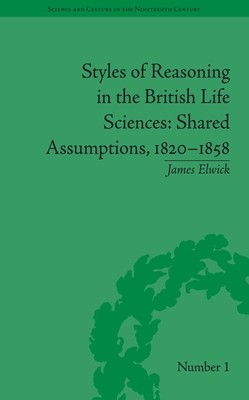
- We will send in 10–14 business days.
- Author: James Elwick
- Publisher: University of Pittsburgh Press
- ISBN-10: 0822966344
- ISBN-13: 9780822966340
- Format: 15.2 x 22.9 x 1.4 cm, softcover
- Language: English
- SAVE -10% with code: EXTRA
Reviews
Description
Elwick explores how the concept of "compound individuality" brought together life scientists working in pre-Darwinian London. Scientists conducting research in comparative anatomy, physiology, cellular microscopy, embryology and the neurosciences repeatedly stated that plants and animals were compounds of smaller independent units. Discussion of a "bodily economy" was widespread. But by 1860, the most flamboyant discussions of compound individuality had come to an end in Britain. Elwick relates the growth and decline of questions about compound individuality to wider nineteenth-century debates about research standards and causality. He uses specific technical case studies to address overarching themes of reason and scientific method.
EXTRA 10 % discount with code: EXTRA
The promotion ends in 19d.00:44:13
The discount code is valid when purchasing from 10 €. Discounts do not stack.
- Author: James Elwick
- Publisher: University of Pittsburgh Press
- ISBN-10: 0822966344
- ISBN-13: 9780822966340
- Format: 15.2 x 22.9 x 1.4 cm, softcover
- Language: English English
Elwick explores how the concept of "compound individuality" brought together life scientists working in pre-Darwinian London. Scientists conducting research in comparative anatomy, physiology, cellular microscopy, embryology and the neurosciences repeatedly stated that plants and animals were compounds of smaller independent units. Discussion of a "bodily economy" was widespread. But by 1860, the most flamboyant discussions of compound individuality had come to an end in Britain. Elwick relates the growth and decline of questions about compound individuality to wider nineteenth-century debates about research standards and causality. He uses specific technical case studies to address overarching themes of reason and scientific method.


Reviews